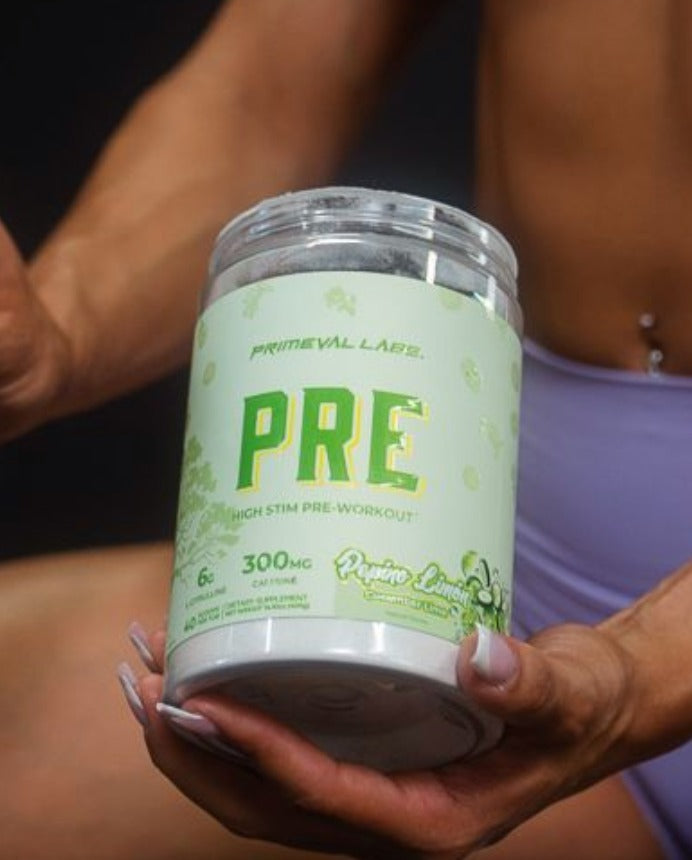What is a 1-Rep Max?
A 1 Rep Max is the maximum amount of weight you can lift for a single repetition of a given exercise through a full range of motion while using proper technique.
To clarify, a one rep max is specific to a particular lift and that lift only.
For instance, if your 1 rep max on bench press is 405, that doesn’t necessarily mean you could bench press 200-lb dumbbells for a single. The absolute strength (1-rep max) that you develop on an exercise is relegated to that exercise and that exercise alone.
Now, getting stronger on a given exercise, such as the bench press, does increase the strength of your pressing muscles (chest, shoulders, and triceps), and as a result, you will be stronger in other lifts that use those muscles, such as the overhead press, dumbbell press, dips, or incline press.
But, each of those exercises will also have their own individual one rep max.
How to Calculate 1 Rep Max
There are multiple ways to calculate your 1-rep max using a variety of different equations that have been developed over the years.
A simple way to do so is using the Epley formula:
1RM = W *(1+R30)
Here, W is the weight you’re using, and R is the number of repetitions completed.
So, let’s say that you can bench 275lbs for 5 reps
Plugging these numbers into the equation gives:
1RM = 275 * (1 + 5/30)
1RM = 320.83-lbs
Calculate Your 1RM Here
One thing to keep in mind, just as is the case with TDEE and BMR calculators, one rep max calculators provide an estimate of what your one-rep max is on a given lift. It may be slightly higher or slightly lower, but generally it gives you a pretty good idea of where your one-rep max strength stands on a lift.
How to Prepare for a One Rep Max Bench Press
Truly testing your one-rep max is time-consuming and exhausting. It also carries with it an increased risk of injury.
Truth be told any type of physical activity bears some inherent risk of injury (you could roll your ankle simply walking from one room to another).
However, going for a true one-rep max entails you pushing your muscles, joints, ligaments, and connective tissue to the very brink of what they are capable of handling.
Some other tips to keep in mind as you consider testing your 1 rep max:
- Prior to the actual testing, it helps to train with lighter weights and lower volumes for several days (up to a week) beforehand as this helps reduce some of the peripheral and systemic fatigue that accumulates over the course of a regular training program.
- As we mentioned, testing your one-rep max inherently means you’re testing the absolute limits of your mental and physical limits. As such, you need to prepare yourself mentally and physically for the task ahead. Make sure your technique is rock-solid on the lift you’ll be testing as any breakdown or inefficiencies in your movement pattern while undermine your attempts and increase your risk of injury
- Hitting your true 1-rep max is going to leave you feeling pretty drained for a few days following your effort. During this time it’s advisable to go lighter with your training (reduced weights and/or volumes).
Due to the inherent risk and excessive fatigue that hitting a true one-rep max induces, many individuals choose to estimate their one-rep max using a calculator like the one above. For example, you can use bench 1rm calculator to calculate your bench press one max.
How Often Should I Test My 1-Rep Max?
Testing your one-rep max isn’t something you need to do every time you step foot in the gym, or even every week, or even every month.
A good rule of thumb for those interested in testing their 1-rep max is to try it once every 4-6 months. This allows enough time for you to actually run through several mesocycles of training, during which you should be gaining size and strength.
Maxing out too often can actually be detrimental to your long term progress as you are continually redlining your nervous system while exposing your body to considerable amounts of stress (both mentally and physically).
Do I Have to Test My 1-Rep Max?
No.
If you’re not a competitive powerlifter, there is no absolute need for you to test your 1-rep max ever, save to satisfy your ego.
While tracking your 1-rep max can be one way to track whether you’re gaining strength (and by proxy, muscle) from your training, you can also track your poundages on any other major compound lift that you’re performing.
For instance, if at one time you were bench pressing 185 for 10 reps and you are now able to bench press 225-lbs for 10 reps, you have gained strength. You also didn’t have to deal with the additional fatigue or increased risk of injury by trying to max out.
Takeaway
A one-rep max test can be a useful tool for some individuals to assess their training progress.
At the same time, it by no means is necessary for all lifters to test their one-rep max, especially if their goals aren’t related to powerlifting. There are other ways to assess progress in your training, such as by tracking the weights you’re lifting and how many reps you're completing.
Over the weeks, if both of those numbers are going up, then you are gaining strength. The added benefit is that you’re able to see your progress without having to actually test your one-rep max or place yourself at undue risk.













Leave a comment
This site is protected by hCaptcha and the hCaptcha Privacy Policy and Terms of Service apply.